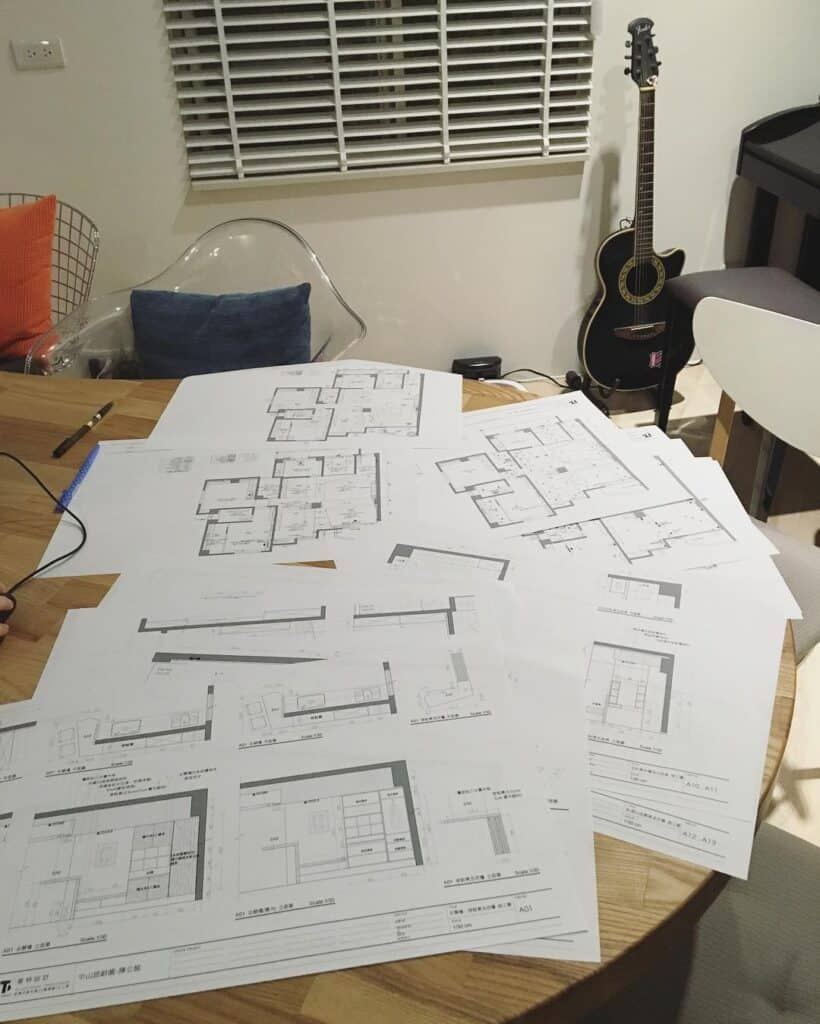You must wonder whether you could work from home as a fresh engineering graduate, but you know engineering can be a desk job.
Many fresh and experienced engineers wonder whether they could move their work to the comfort of their homes to save time and money.
The short answer is yes; the engineer can work remotely!
In general, Engineers specializing in software, civil, mechanical, chemical, and computers can work from home by regularly communicating with the team and sharing progress through reliable digital platforms.

However, some tasks may require field work and in-person meets, primarily civil, chemical, and mechanical engineering, which may prevent remote work.
Therefore, before committing, you should consider companies hiring engineers for remote or onsite jobs.
Read on to find out what engineering jobs allow you to work from home and where to find one.
Table of Contents Show
Can Engineers Work From Home?
Yes, engineers can work from home—Technically, any engineering job that does not require onsite inspection or fieldwork can do remotely.
The State of Remote Engineering 2022 Edition surveyed 1000 engineers post-COVID pandemic. The report suggests that 68% of employees say remote work boosts productivity.

While a report by MOOC.org states that 86% of software engineers or programmers work remotely full-time.
Most remote workers telecommute to meet with colleagues, staff, and suppliers.
In fact, with faster internet connection and telecommuting apps like Zoom, Google Meet, and Skype, the process has been smoother and more reliable.
Many employers also have opened positions that allow engineers to work remotely, which is a Win-Win.
Here are some benefits of working as a remote engineer.
- Most engineering tasks can be done using predesigned software and telecommuting with the team.
- It offers a better work-life balance and saves expenses on commuting and eating out.
- It offers more opportunities as you can work for multiple companies at home.
- Software engineers will enjoy more opportunities to work remotely than other engineers, as almost all of their work is virtual.
- As a programmer, you are more likely to find remote work, save commuting expenses, avoid eating out, and even receive work-from-home stipends.
What Type of Engineers can Work from Home?
Engineering is a strong field of work combining science, art, and technology to design, build, and restructure products.
These products may range from engines, machines, and software to physical structures, spanning various industries.
Therefore not all engineering jobs are created equal. Some require working in the manufacturing unit with a massive team, while others can be done remotely.

The engineering fields that allow remote working may dramatically differ from applications or industries.
However, some fields remain more applicable for remote work than others. Here are some engineering categories that can work from home.
| Jobs | Specification | Benefits |
|---|---|---|
| Software Engineer | 1. Software engineering involves analyzing, modifying, and designing software through programming languages like Java, Oracle, PHP, etc. 2. They have the longest access to computers and internet access among all the jobs. | 1. They are most likely to find remote work. 2. They can earn a global average of $70,877 per annum. 3. Virtual meetings make daily work easier. |
| Civil Engineer | 1. It is an odd cup of tea for remote work because a substantial amount of work requires on-site inspection and meetings with workers and suppliers. 2. Remote sensing imagery, data research, and consulting are possible be done remotely. | 1. A civil enginer would earn $60,550 - $117,270 per annum. 2. Tasks surrounding study and design (AutoCAD, Stadpro, and Revit), estimation, and rate analysis can be done remotely. |
| Mechanical Engineer | 1. It is a software-related career path involving designing machines, electric generators, combustion engines, etc. 2. They have exposure to acoustics, aerospace, automation, automotive, biotechnology, and CAD. | 1. They could earn $95,200-$107,800 per annum. 2. Many aspects of manufacturing, design, and implementation can be carried out remotely. |
| Chemical Engineer | 1. It involves developing and designing chemical manufacturing processes and involves the principles of chemistry, biology, and math. 2. Most studies and data analysis involve researching chemicals, fuel, drugs, and food which have remote work possibilities. | 1. They would make about an average of $77,321 per annum. 2. Companies may hire remote worker for patent engineer, analyst, data manager, process engineer, etc. |
| Computer Engineer | 1. Computer engineering combines computer science and electronic engineering, including research, design, and testing applications. 2. Most jobs require on-site presence, while some aspects can be done remotely. | 1. They can make from $76,000 to $102,000. 2. Remote jobs options are limited to software related tasks, while most hardware tasks require on-site presence. |
| Aerospace Engineer | 1. It is an engineering concerned with the development of air or spacecraft. 2. Tasks that does not require physical input can be done in computer at home. | 1. They can earn about $86994 per annum. 2. Remote jobs are available through contracts and freelancing. |
| Electrical Engineer | 1. it is concerned with study, design, and application of electrical equipment. 2. Remote work facility is available for many tasks concerning study and design. | 1. They can earn $87,174 per annum. 2. Research and analysis work can be conducted remotely. |
How do you Become a Remote Engineer?
Becoming a remote engineer is not so different from becoming an engineer. The only difference between the two is the work location.
However, there are steps to becoming a remote engineer.
Step 1: Qualification/Skills
You cannot imagine becoming a certified engineer without earning a certificate.
Therefore, the step to becoming an engineer starts with becoming qualified.

The primary qualification requires a bachelor’s degree in the relevant field, such as;
- BE in Computer Engineering
- BE in Civil Engineering
- Bachelor of Chemical Engineering
- Bachelor of Engineering in Electrical and Electronics Engineering
- BSc in Mechanical Engineering
Most companies seek engineers with months or years of experience before hiring in a remote position.
For programmers, especially, complete knowledge and working of any programming language, troubleshooting, and development skill become essential.
Step 2: Remote Job Search
One of the best ways to find a remote engineering job is to consult with your existing employer to allow remote work.
This will virtually eliminate the need to search for new jobs or companies.
Otherwise, you should seek and apply for remote job positions through job ads, placement agencies, or companies.
Here are a few popular companies that seek different engineers in a remote positions.
| Company | Engineering Job |
|---|---|
| Amazon | -Systems Engineer -Senior Engineering Projects Manager - Support Engineer |
| Bentley Systems | -Application Engineer, Mechanical -Geotechnical Sales Engineer |
| CommScope | -Systems Engineer -Senior New Product Introduction Engineer -Technical Support Engineer |
| Kelly | -Civil Engineer -Application Engineer -Quality Engineer – Medical Device Orthopaedics |
| KForce | -Reliability Packaging Engineer -iOS Engineer -DevOps Engineer |
| Motorola Solutions | -Systems Engineer -WAVE Systems Engineer -Pre Sales Solutions Engineer |
| NVIDIA | -Application Engineer, Healthcare -Senior Security Engineer -Distinguished Engineer, |
Alternatively, you can search for remote positions on Indeed, FlexJobs, StackOverflow, WorkingNomads, ZipRecruiter, Fiverr, Upwork (freelancing), and so on.
Step 3: Become a Remote Teammate
Remember, a remote worker alone is only as good as himself.
Therefore, companies create a remote teams to work on complex projects across multiple time zones.
Some would work daytime or nighttime. Similarly, some would require working in a larger team while others would be in a small group.

Remote working may become a roadblock to teamwork; therefore, various telecommunicating apps are in place to prevent this problem.
As a remote worker, you should follow the conditions laid out by the employer required for team collaboration, such as:
- 15-minute daily standup
- Reporting to the project manager
- Meeting on Zoom or Google Meet whenever the problem arises
- Weekly sprint planning and retrospection, etc.
Similarly, a remote engineer is expected to commit to contracts and duration laid out by the employer.
Generally, experienced engineers can switch to remote work when they are trusted by their superiors, which may come from the utmost dedication to work, a productive attitude, and accountability.
Some companies may allow engineers to work remotely on exceptional cases, such as for new mothers, someone recovering from an accident, etc.
Challenges Faced by Engineers When Working From Home
Although working from home may save you a lot of time commuting and provide comfort, you will constantly face isolation, time-management issues, and poor work/life balance.
Did you know that 20% of employees name collaboration and 20% loneliness as the main challenges with remote work?
Therefore, remote working will come with many challenges that you must overcome.
Here are a few examples.
1. Poor Workplace Communication
Many remote workers cite the problem of poor workplace communication as the main hurdle in getting anything completed.
Remote work is all about communicating to stay in sync; therefore, a lack of in-person interaction may affect productivity.
The only solution is to define your goals and expectations during daily conversations to bridge the gap.
Daily meetings, friendly conversations through Slack, video conferences, and in-person video chat will help solve poor workplace communication.
2. Different Time-Zone
Working in different time zones is another significant hurdle toward effective remote working.
Remember, remote working could mean working for employers located in a different country or working at odd-shift to fill the production gap.
Therefore, team collaboration can become very challenging due to delayed feedback and email response.
Here are a few tips to overcome time-zone differences.
- Use telecommunication tools to stay in sync, such as Slack, Google Meet, Zoom, etc.
- Communicate when everybody is online such as morning or evening.
- Set expectations for day-to-day work and follow the routine.
- Do not micromanage; stay in the loop with the team before starting a new task.
- Ask for regular feedback, so you do not fall back on the deadline.
- Track performance through daily or weekly sprint meetings.
3. Constant Distractions
Working from home means constant distractions from family members, household chores, slacking attitude, boredom, noise, etc.
Although no permanent solutions can curb these problems, you can try minimizing them to a more significant number.

- Create a barrier between work and personal time by placing your workstation in an isolated corner.
- Turn off or remove distracting media such as TV, games, or radio during work.
- Put your phone in “Do Not Disturb” mode.
- Take short breaks or stretch your legs every half an hour to beat boredom.
- Use noise-canceling earphones/headphones or soundproof your room using noise-canceling acoustic panels.
4. Work-life Balance
Remote workers may miss work-life balance because working from home will erase the boundary between work and life.
About 18% of remote workers struggle to unplug from work when working remotely.
Therefore, creating a work-life balance becomes a must to prevent burnout.
- Create flexible work hours such as 3-hour work and one-hour personal time.
- Use time-tracking software such as Time Doctor, Hubstaff, or Zoho to monitor your work time so you do not overwork.
- Create mini assignments so that you can take time off after each completion.
- Separate time for socialization with friends and family or movie time.
- Avoid working on the weekends so you can take time off.
- Do not forget exercise, walking, or Yoga which helps with work-life balance.

5. Lack of Mentorship
Working remotely means missing the chance to receive mentoring from the seniors, which may help them gain better insights.
Working on the site allows the juniors to learn from their seniors and imbibe best practices to improve their skills.
However, remote working will entirely prevent this opportunity.
- As a solution, you can initiate mentoring and training sessions among remote employees where experts speak on different topics.
- Conduct monthly sessions where you can present your research on specific problems, skills, or activities.
- Constantly ask for feedback and reviews from the experts.
- Do not let go of the chance to participate in webinars, seminars, and meet-ups with experts.
- Actively ask questions and seek answers in every meeting.
What do you Need to Work from Home as an Engineer?
Engineers working from home should amass the necessary resources and tools to stay updated.
Because delivering on time will entirely depend on the resources and tools at your disposal.
For remote workers, the most important tools are those which help combat telecommuting difficulties.

Here are a few good examples.
| Resources | Specification |
|---|---|
| Comfortable Workplace | 1. Start with setting up a home office or dedicated work station. 2. Amass comfortable chair and desk with required accessories. |
| A good laptop/pc | 1. Laptop or PC should have significant RAM and hard-desk space to run appropriate applications such as CAD, PlanGrid Construction, Dreamweaver, etc. 2. Add comfortable mouse, keyboard, speakers and headphones as necessary. |
| Specialty equipment | 1. Install industry-specific equipment rented or purchased or hired from the company. 2. Get tools and equipment required for daily work such as measurement, documenting, reporting etc. |
| Fast Internet connection | 1. Fast internet speed is the prerequesite for comfortable and effective remote work. 2. Get internet with a speed of 50-100 Mbps. |
| Productive Digital Applications | 1. Install necessary time-tracking, production-tracking, or telecommuting apps 2. The remote work apps may include Slack, Trello, Zoom, DropBox, TimeDoctor, Microsoft Teams, Google Drive, RescueTime, Google Meet, etc. |
Conclusion
Working from home can be an excellent opportunity for budding engineers, but the challenges are not far.
Use this guide to assess possible challenges with remote work and amass the necessary resources and tools to curb them.
However, let distractions occasionally happen to prevent burnout and boost productivity.
Please drop in your comment to let us know the challenges you faced with remote working as an engineer and how you overcame them.
Related Article: 15 Ways to Beat Work-From-Home Fatigue


